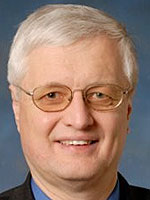Staff Reporter
Experts Offer Best Practices for Coronavirus Response

[Stay on top of transportation news: Get TTNews in your inbox.]
Transportation and emergency management professionals recently stressed the importance of organization and communication as agencies respond to the coronavirus.
Herby Lissade, a California Department of Transportation engineer who serves as assistant division chief in the office of maintenance and field support, encouraged state departments of transportation to have measures in place, such as pandemic plans and telework policies. Lissade spoke at a webinar hosted by the Transportation Research Board on March 23 that covered transportation and COVID-19.
Lissade said Caltrans has activated emergency operations centers, eliminated in-person meetings and ensured the availability of personal protective equipment at offices. California, which is home to about 39.5 million people and the fifth largest economy in the world, had reported 1,709 coronavirus cases as of March 23, according to the Centers for Disease Control and Prevention.
Today we discussed transportation & #COVID19. Thank you Vicki Hertzberg of @EmoryNursing, Herb Lissade of @CaltransHQ, and @lochhavenEM for answering a number of questions on today's webinar. #ICYMI - The recording is now available.https://t.co/XTIKwU2xA3 pic.twitter.com/twL2xBJ04Y — TRB (@NASEMTRB) March 23, 2020
“Unlike Disneyland, we are open for business and must keep our systems functional,” Lissade said.
Walt Disney Co. shuttered its Anaheim park in response to the virus, marking the fourth time in history Disneyland has closed.
Unlike natural disasters, Lissade noted that pandemics do not cause heavy physical damage to infrastructure. However, he said it remains up to state departments of transportation to ensure lane miles and bridges are functioning well.
“State DOTs’ responsibilities are great and they vary by state,” Lissade said. “State DOTS are owner-operators of the systems they maintain.”
Kim Fletcher, a consultant with CNA, a research organization that specializes in safety, noted that the response to pandemics involves many of the same steps as the response to disasters such as hurricanes. Like evaluating damage after the rain and wind cease, she said there will be a period of assessment when the coronavirus pandemic comes to an end.
“[Eighty percent] of pandemic response is like a normal disaster response,” Fletcher said. “The difference about pandemics is that that 20% that’s left over is about the people first, and then it’s about the absence of the people having impact on your systems.”
Fletcher, who has been in the field of emergency management for 40 years, stressed the importance of building relationships with disaster mitigation workers and policymakers — preferably before a crisis event occurs.
“The role of the policymakers is critical. It’s critical in preparedness. It’s critical in response,” Fletcher said. “Having a good relationship is a really important thing. They need to become their partners.”

Pedersen
The webinar was moderated by TRB Executive Director Neil Pedersen, who described the pandemic’s effect on the trucking industry as mixed. He said trucks delivering medical supplies and paper products have seen an increase in business, while other companies have been laying off employees.
Pedersen mentioned the Federal Motor Carrier Safety Administration’s recent relaxation of certain hours-of-service regulations for motor carriers involved in coronavirus-related relief efforts. The declaration was issued March 13, shortly after President Donald Trump declared a national emergency in response to the virus.
The declaration applies to truck operators involved in direct assistance efforts, such as hauling medical supplies and testing equipment, masks, gloves, hand sanitizer, food and personnel. A former Maryland State Highway Administrator, Pedersen noted the importance of transporting essential products during an emergency.
“Sometimes when you’re in an emergency situation, the very long hours are something that is necessary in terms of being able to address the emergency situation,” Pedersen said.
Want more news? Listen to today's daily briefing:




